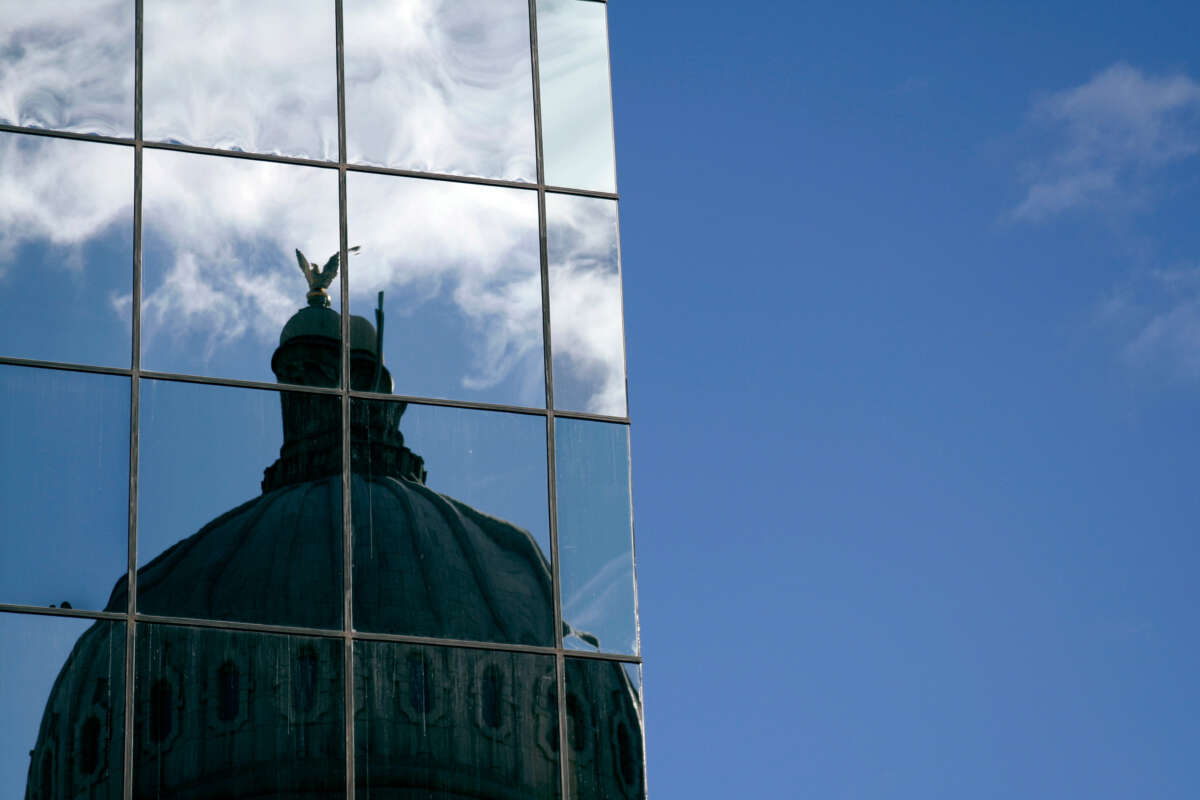Truthout is a vital news source and a living history of political struggle. If you think our work is valuable, support us with a donation of any size.
An Idaho bill that would ban public funds from paying for gender-affirming care advanced out of committee and now heads to the Idaho House floor.
“Concerning!! A bill in Idaho that would greatly limit ADULT access to gender affirming care has PASSED committee,” LGBTQ legislative researcher Allison Chapman said on social media. “It prohibits use of state funds, medicaid, and state facilities, state health care provider[s] from providing GAC [] and makes money used for GAC non tax-deductible.”
Idaho is one of 22 states that currently ban gender-affirming care for transgender minors. House Bill 668 would forbid state property, facilities, or buildings from “provid[ing] the surgical operations or medical interventions” described in the previous law prohibiting gender-affirming care for trans minors, and would also bar doctors or health care professionals employed by state, county, or local governments from providing gender-affirming care “in the course and scope of (public) employment.” Public employees or officials who deliberately violate the bill may be subject to charges of misusing public funds.
Activists say this bill will limit transgender adults to best-practice medical care as well as exacerbate the health care crisis that transgender youth in the state are currently experiencing.
“This will greatly restrict access to HRT for adults and minors in the state of Idaho,” Chapman said.
A recent study revealed that individuals who identify as gender non-conforming are more likely to find themselves in a lower socio-economic status, and are therefore more likely to qualify for Medicaid. In fact, the Williams Institute estimates that 28 percent of LGBTQ adults in the state — or more than 13,000 people — make less than $24,000 a year. Additionally, a 2015 survey of transgender people in the state found that 25 percent lived in poverty and 6 percent were unemployed.
“Repealing Medicare and Medicaid coverage for (hormone replacement therapy) limits my access to medication that I need to function properly in society, lowering my quality of life while I live here in Idaho,” Merrick Collins, a transgender man, testified at the bill’s committee hearing.
According to the Movement Advancement Project (MAP), nine states currently explicitly exclude trans-related health care for all ages from Medicaid coverage and three states exclude trans-related health care for minors from coverage.
“This bill seeks to discriminate further against my trans and non-binary siblings, compromising our health and wellbeing. Further vilification and marginalization of a vulnerable population is nothing more than a cruel and vicious attack,” AlexaLynne Fill testified during the committee hearing. “Stop the hate, do better and serve the entire citizenry of Idaho.”
The American Civil Liberties Union (ACLU) is currently tracking 12 anti-LGBTQ bills in the state, including House Bill 668. Other advancing bills would permit adoption and foster care applicants who are anti-LGBTQ to adopt LGBTQ children; mandate that government employees misgender their trans coworkers and require teachers to misgender and deadname trans students; ban the display of pride flags in schools; and prohibit diversity, equity, and inclusion positions as well as diversity training in colleges and universities.
Earlier this month, a coalition of nonprofits and LGBTQ leaders staged a protest against these anti-LGBTQ bills at the Idaho State Capitol.
“We are here, and we refuse to be invisible, despite bills explicitly trying to erase our humanity and our rights. March Forth is a place for trans and queer Idahoans to express our outrage, reaffirm our dignity, and heal together in a radical act of love and rebellion,” said ACLU of Idaho Advocacy Fellow Jenna Damron. “We are proud and we are not going anywhere.”
Holding Trump accountable for his illegal war on Iran
The devastating American and Israeli attacks have killed hundreds of Iranians, and the death toll continues to rise.
As independent media, what we do next matters a lot. It’s up to us to report the truth, demand accountability, and reckon with the consequences of U.S. militarism at this cataclysmic historical moment.
Trump may be an authoritarian, but he is not entirely invulnerable, nor are the elected officials who have given him pass after pass. We cannot let him believe for a second longer that he can get away with something this wildly illegal or recklessly dangerous without accountability.
We ask for your support as we carry out our media resistance to unchecked militarism. Please make a tax-deductible one-time or monthly donation to Truthout.
